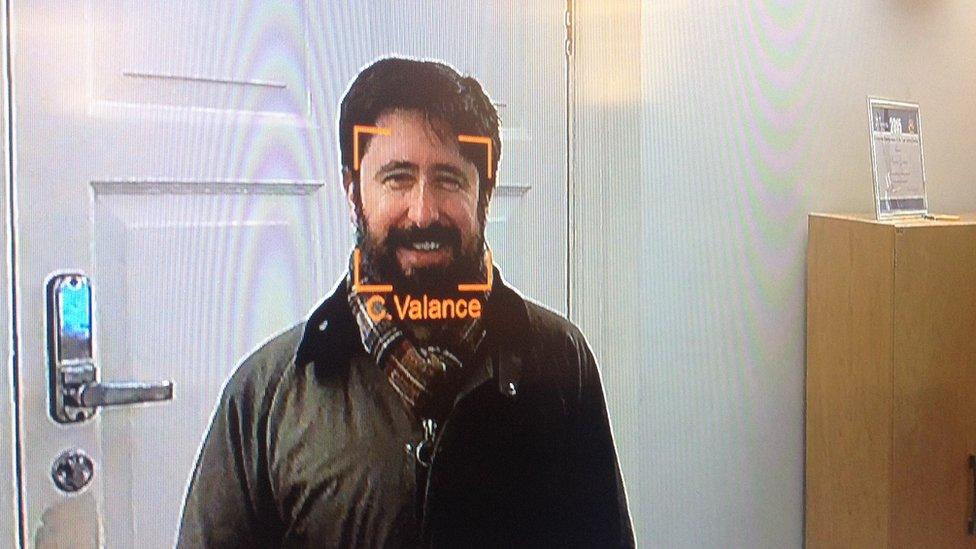Lords criticise custody images policy
- Published
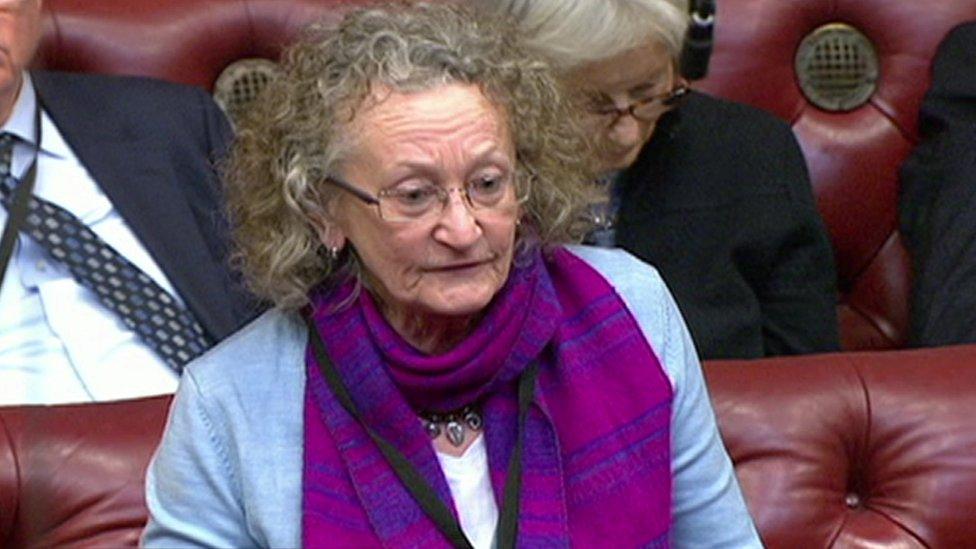
Baroness Jones, who says her image is on the Police National Database, said it would be easier for the police to delete custody images
People who are not convicted of offences should have their photos automatically removed from the Police National Database, peers have said.
The government plans to allow innocent people to ask for their custody image to be deleted from the database, which contains more than 19 million in total.
But Green peer Baroness Jones, who says her photo is stored, said it would be easier for the police to delete them.
Home Office Minister Baroness Williams said that was too "resource intensive".
Last week, the government announced that someone who was not convicted of the offence in relation to which their image was taken has the right to request deletion from all police databases, including the Police National Database.
The custody image review, external also recommended that there should be a presumption that chief officers would delete images following an application.
It said only "an exceptional reason" should stop them from doing so - or a "highly exceptional reason" in the case of those under 18.
The report also said the police should automatically review all of the custody images they hold after specified periods, in order to ensure that they are only retaining those they need to keep.
'Manual process'
The review was prompted by a High Court ruling in 2012, that said that existing policy concerning the retention of custody photographs by the police was "unlawful".
Baroness Jones, from the Green Party of England and Wales, said: "I don't understand how an innocent member of the public will know that their image is on the database?
"Surely it would be easier for the police to just delete those innocent people without putting them to the trouble of applying."
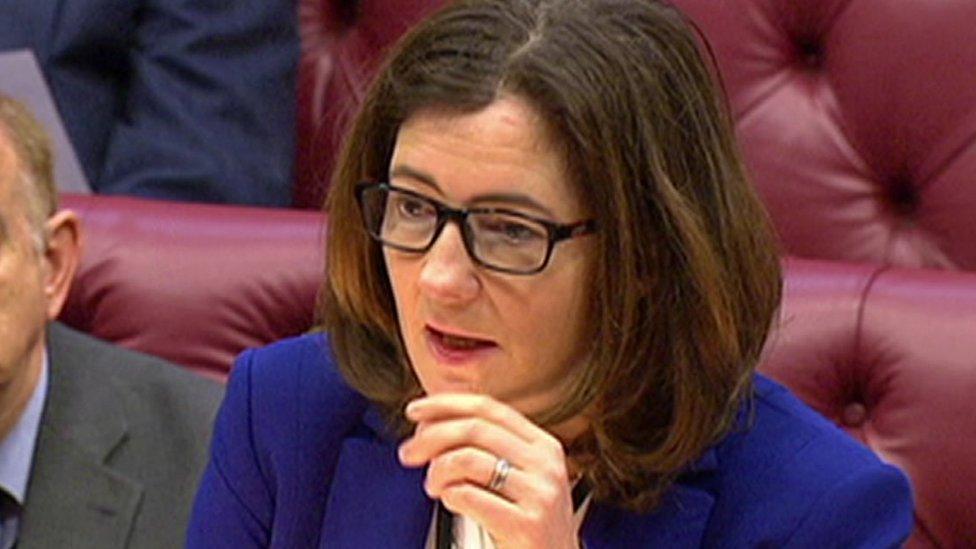
Baroness Williams of Trafford said it would be "incredibly resource intensive" to remove all custody images from all police databases
Lord Rosser, shadow home affairs spokesman, also suggested that without a publicity campaign, innocent people would not realise they could apply to have their pictures removed.
And Lord Paddick, Liberal Democrat home affairs spokesman, asked "why apparently innocent people's photographs that are currently on the database are not going to be identified and removed by the police".
In response to Baroness Jones's question, Baroness Williams of Trafford said: "Actually, it is a manual process.
"It would be incredibly resource intensive, and there will be people who don't mind their image - I mean if my image is on the PND, I don't think it is, if my image is on it… yours is?"
After Baroness Jones confirmed it was, Baroness Williams said: "I expect the noble lady to request deletion immediately."
Image duplicates
All but nine forces uploaded custody images to the Police National Database and about 50 agencies searched it, including forces in Northern Ireland, Scotland, England and Wales and organisations such as the Ministry of Defence and the National Crime Agency, the Home Office report said.
Of the nine forces that do not uploaded images, the largest is the Metropolitan Police.
The report said the 19 million custody images included "many" duplicate images of the same individual.
During the exchanges, Baroness Williams said she thought it likely that US law enforcement officials would have access to the UK's database under international data-sharing deals to tackle crime.
In Scotland, the Criminal History System records the outcomes of cases and retains information based on the nature and seriousness of the crime.
Custody photographs are not uploaded to the system unless an individual is charged with a crime.
And the image is deleted from the Criminal History System within six months of an investigation concluding, if there is no conviction.
- Published3 February 2015
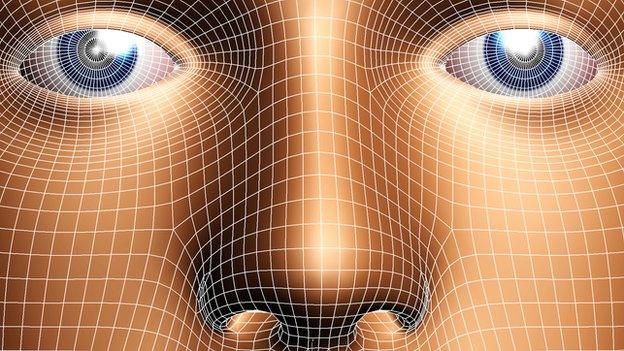
- Published7 March 2015
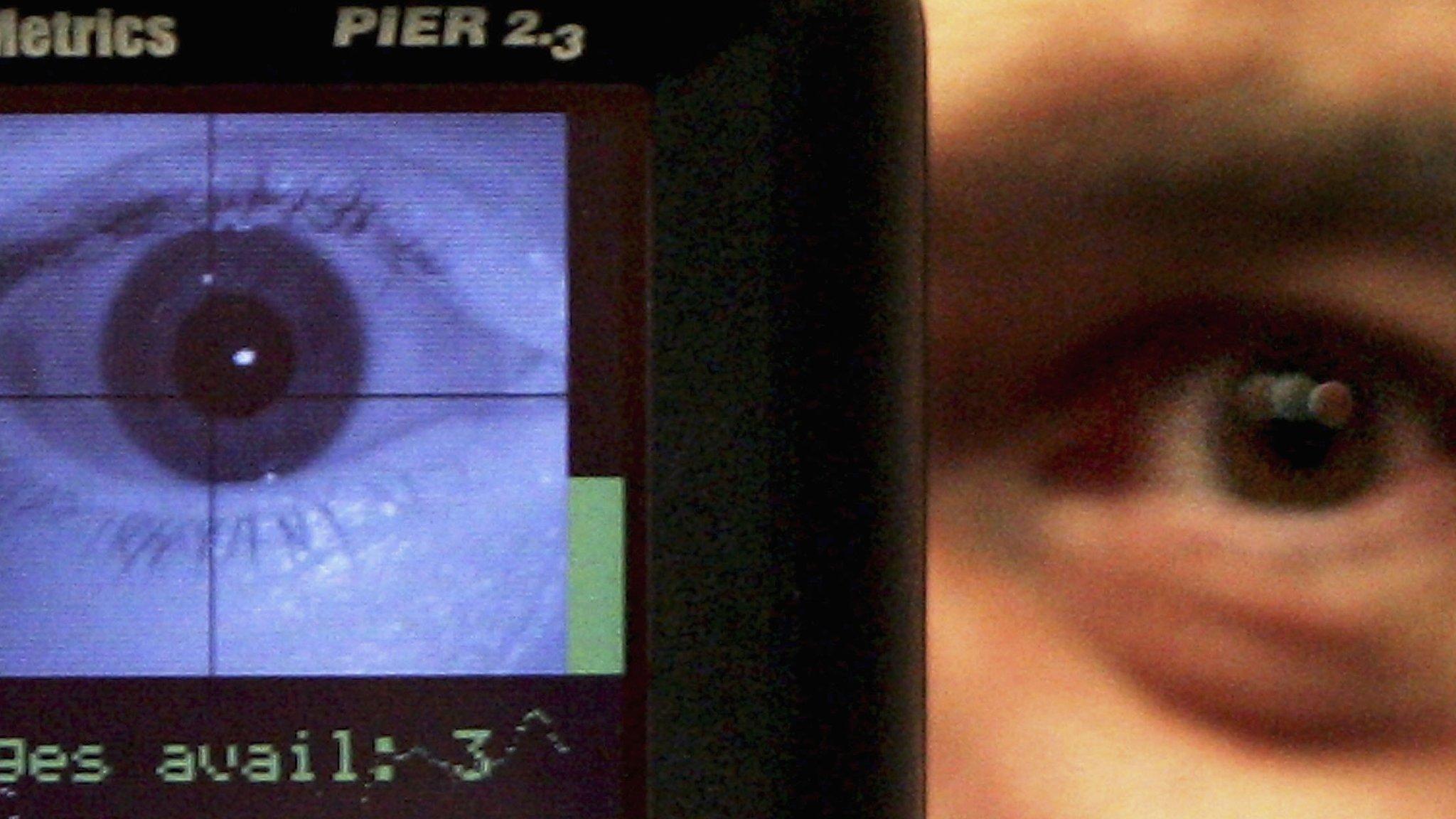
- Published16 December 2015
